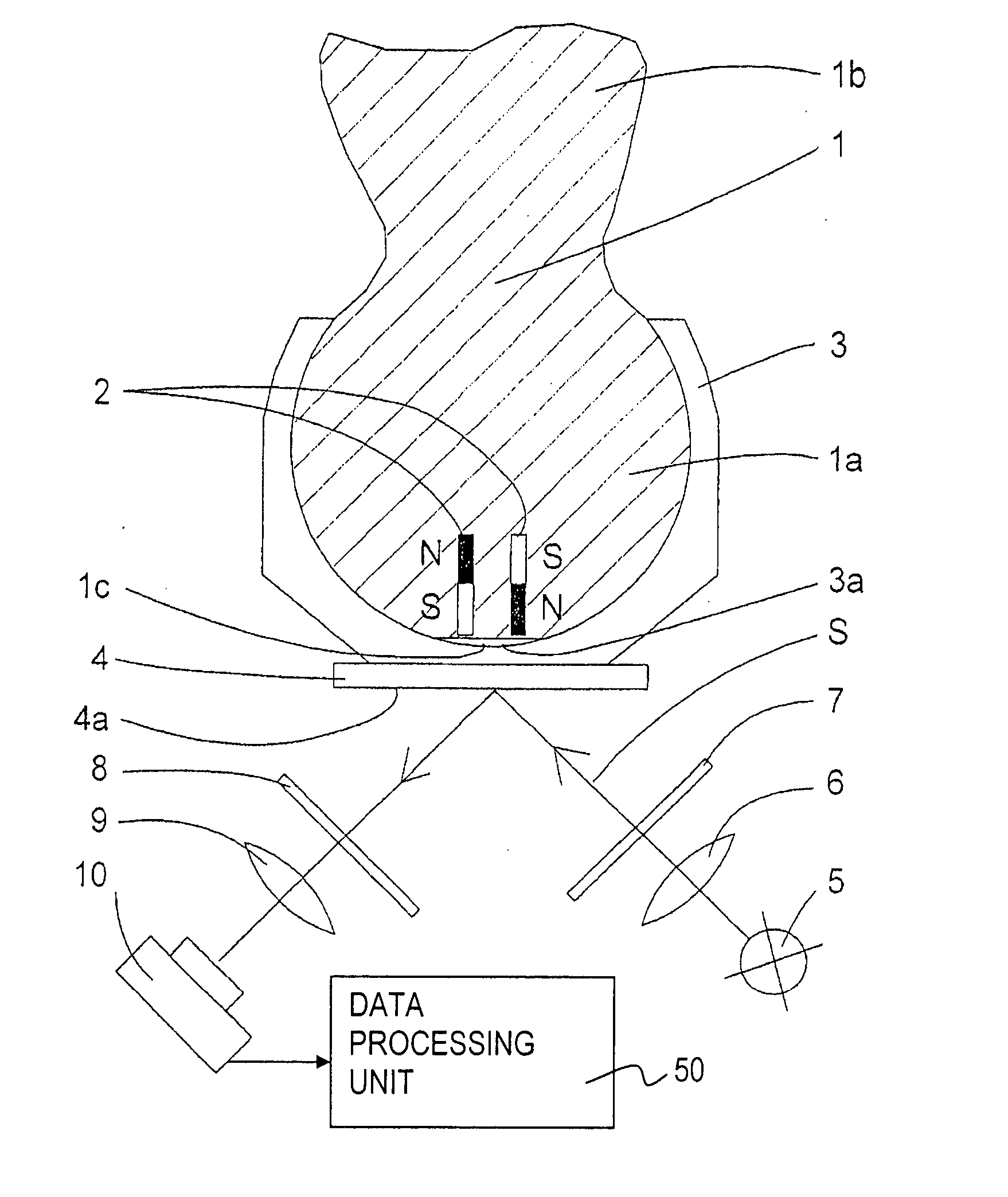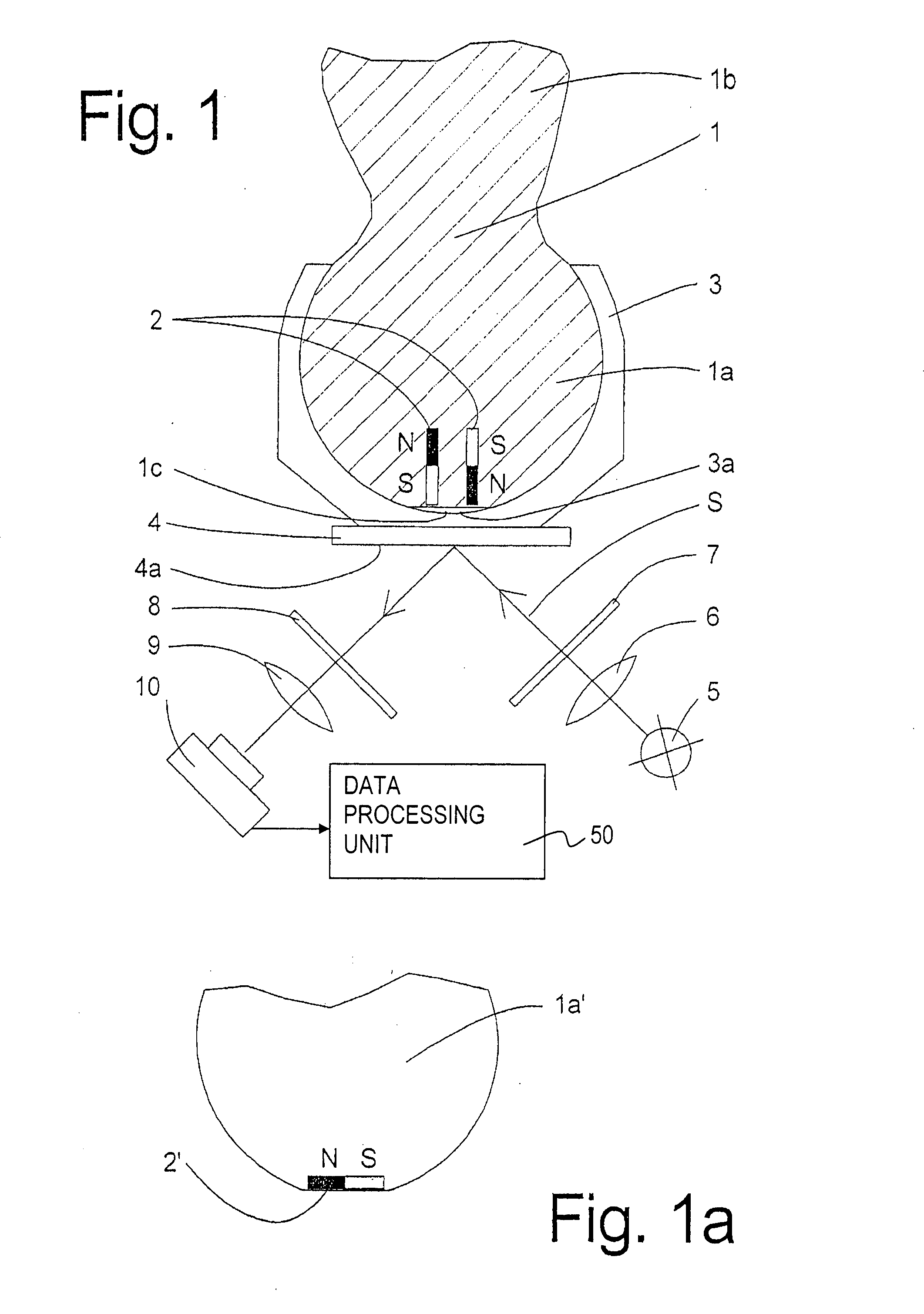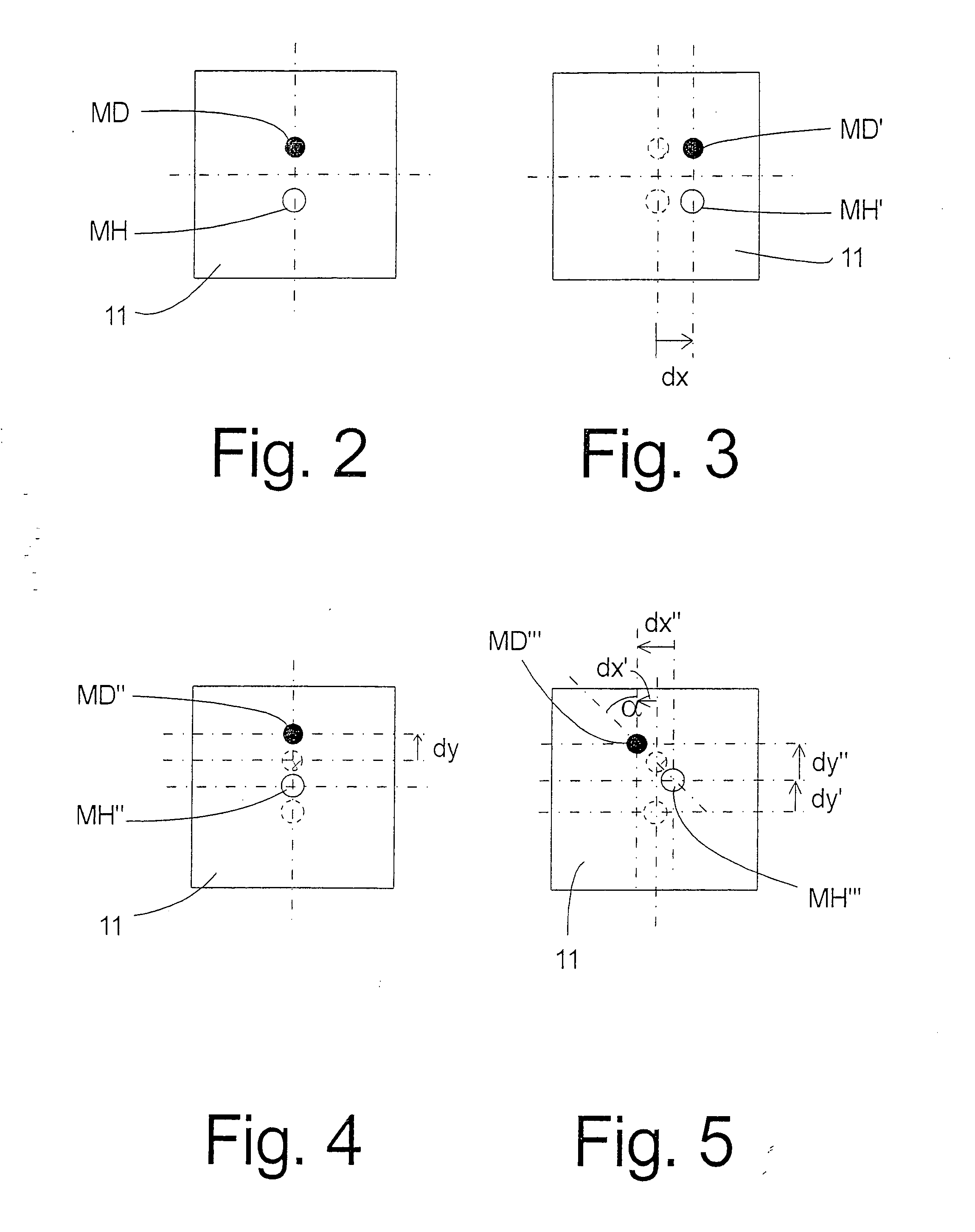Rotation and/or tilt angle detection means for a ball and socket joint
a detection means and a technology for detecting the rotation and/or tilt angle, which are applied in the direction of instruments, speed/acceleration/shock measurement, couplings, etc., can solve the problems of disadvantageous disadvantageous coupling of a plurality of sensors, and insufficient measurement of the rotation and tilt angle, etc., to achieve simple sensor array and simple design
- Summary
- Abstract
- Description
- Claims
- Application Information
AI Technical Summary
Benefits of technology
Problems solved by technology
Method used
Image
Examples
Embodiment Construction
[0020]FIG. 1 shows a cross-sectional view through a ball and socket joint with a rotation and / or tilt angle detection means according to the present invention. The ball and socket joint comprises a ball pivot 1, which is inserted into a bearing shell (ball socket 3) with its joint ball 1a made in one piece with the pivot 1b. The pole face 1c of the joint ball 1a is flattened, so that a free space 3a, which can be used as a grease space or grease depot, is formed between the joint ball 1a and the bearing shell 3. Two permanent magnets 2 are arranged at spaced locations and in parallel to one another in the joint ball 1a in the pole area, one permanent magnet 2 being directed or pointing with its north pole N and the other permanent magnet 2 with its south pole S in the direction of the pole face 1c. The permanent magnets 2 may either be inserted into openings and firmly connected with the joint ball 1a, e.g., by means of an adhesive. However, it is also possible to integrate or to ca...
PUM
 Login to View More
Login to View More Abstract
Description
Claims
Application Information
 Login to View More
Login to View More - R&D
- Intellectual Property
- Life Sciences
- Materials
- Tech Scout
- Unparalleled Data Quality
- Higher Quality Content
- 60% Fewer Hallucinations
Browse by: Latest US Patents, China's latest patents, Technical Efficacy Thesaurus, Application Domain, Technology Topic, Popular Technical Reports.
© 2025 PatSnap. All rights reserved.Legal|Privacy policy|Modern Slavery Act Transparency Statement|Sitemap|About US| Contact US: help@patsnap.com



